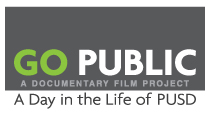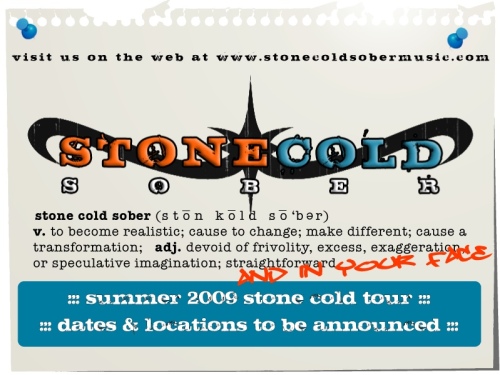As a follow up to my previous blog on mentoring, I had the privilege yesterday of attending a director’s retreat sponsored by the DGA. The subject was the best tools for directing actors in feature films and television. It was a wealth of information that I’ll only be able to touch on here.
I came into the retreat with more experience then some from my theater directing background (I’m still a directing member with Theatre Neo) and having read Judith Weston‘s wonderful book “Directing Actors” and Sidney Lumet’s important book, “Making Movies.” Both books were mentioned more then once. I’ve never taken any of Weston’s workshops but have worked with director’s that have gone through her course and met her a few times at the International Film and Video Workshops (now Maine Media Workshops). I can’t recommend it enough.
Director John Badham (Saturday Night Fever, War Games), opened with a keynote address promoting his new book, “I’ll be in My Trailer.” Badham, now directing episodic television, has been in the business for over 35 years. He outlined five common mistakes director’s make that the other director’s (Neil LaBute, Kimberly Pierce, Jamie Babbit, David O. Russell, Jeremy Kagan, and Gordon and Helen Hunt) reiterated in the panel discussions. First mistake, especially common in television is the “anonymous” director. They all discussed the importance of introducing yourself to the actors, especially the nervous Day players. Many directors get caught up in the technical and get flustered when the actors appear on the set with their own ideas. Rehearsal is the most important thing and time with the actors must be scheduled into a production. Television is harder because of time, but even a read through will help the director and actor’s relationship. Come in early and go to the trailers while the actor is getting make up, introduce yourself, address their concerns before you go to the set at call time.
All the directors found it better for the production if they had enough rehearsal time. Neil LaBute discussed respecting the actor’s process, no matter how crazy it seems. Casting is so important especially with short rehearsal times, but if an actor is forced on you because of financing, you’ve got to research what that actor is capable of doing, rethink how you’ll approach the project. At least, get a lunch meeting before you meet on the set. Some actors know the camera, understand lenses. They can deliver their performance in a few takes, others only really deliver after many takes. The more you know about the actors personalities and previous work, the better you can plan your schedule, shooting the coverage of the actors based on their strongest ability to deliver.
The second mistake is hiding behind video monitors and yelling out direction or saying “nothing,” which is even worse. Now, I’ve worked on a few feature films with directors like this and it never fails that the end product suffers. If nothing else, say “great” after “cut.” “More energy” is not good direction. Action verbs that mean the same thing but at different degrees works much better then “Make it bigger” or “Make it smaller.” Directors need to be by the actors. Kimberly Pierce wears a small video monitor around her neck, so that she can do both. Helen Hunt felt a little distance is good for sex scenes, certainly a limited crew around the actors. All the directors hate the “village of idiots” that gather around a video monitor.
Both David O. Russell and Neil LaBute are doing their next film on digital so that they can just keep rolling, let their actors play, but Helen Hunt has been on a couple of digital features and finds them “too loose, not enough focus.” Kimberly Pierce likes the ability to do more takes by changing the film lens and asking for the actor to give a different performance. She sees no use in having the same take over and over again. All agreed that having a second camera (B camera) will save you in the editing room.
Another big mistake is the director wanting to be the nice guy and never creating his or her authority. Discipline actors that haven’t done their homework or learned their lines. Failure is OK, but not reading the script is not. It’s also useless to explain the scene to the actor, they can read that in the script. They need to understand what their character wants in the scene and why? But don’t give them the answer, they need to own the reason, then they can bring it to their performance. Notes are important to the actor, but give it to them privately, a secret note, not a public shout out.
What if the actor doesn’t do what you want them to do, for the blocking of the scene or the line reading you expect. It’s a big mistake to just tell the actor where to go, you need to help them find it out on their own. Another big reason for the rehearsal process. Gordon Hunt, Helen Hunt’s father and a long time television and theater director, including numerous episodes of “Mad about You,” suggests using the term, “how about” when prompting actors to try a blocking idea. If the actor states that his character wouldn’t do that, then ask what his character would do, most of the time it isn’t the action, but a word that bothers the actor. Hunt also revealed his secret to getting a line reading. On the next take, if you are the director, you yell out to begin the next take at the particular line you want corrected and you give the exact line reading you desire. It’s worked for him almost every time for close to fifty years.
The fifth mistake is saying “No.” You need to help the actor get out of their personal polite space. If an actor has an idea, let them discover it doesn’t work on their own. I certainly have discovered this technique in many of my theater productions. Actors have come in with some strange concept or prop and usually discover if it isn’t working. On the other hand, they sometimes added a richness to the character that I didn’t think about before. Be open. “We will do it” is better then “you will do it”. Also, realize that if an actor has a problem with his or her wardrobe, don’t ignore it because usually it has nothing to do with wardrobe and everything to do with the character they are portraying. That’s an issue that needs to be resolved immediately.
Helen Hunt added much to the day because of her experiences from both in front and behind the camera. In her view, all directors should take acting classes to understand the actor’s point of reference. I agree and certainly find myself falling back on those Emerson College acting courses to guide my directing work. Neil LaBute started as a student actor and many of his best films have been done working with actors like Aaron Eckhart that he has known since those days. One of my favorite times directing was when I made the web series, “Unconventional,” because I pulled about fifteen actors that I had worked with in the theater, here in Los Angeles, and we created these characters based on my notes and the actors ideas. There was no script, it was just me, a camera and the actors. It was exhilarating and fun. It’s the reason I got into this business in the first place. It was nice to be reminded. To quote director Martha Coolidge, “the most important role of a director is to work with actors.”
Read Full Post »



